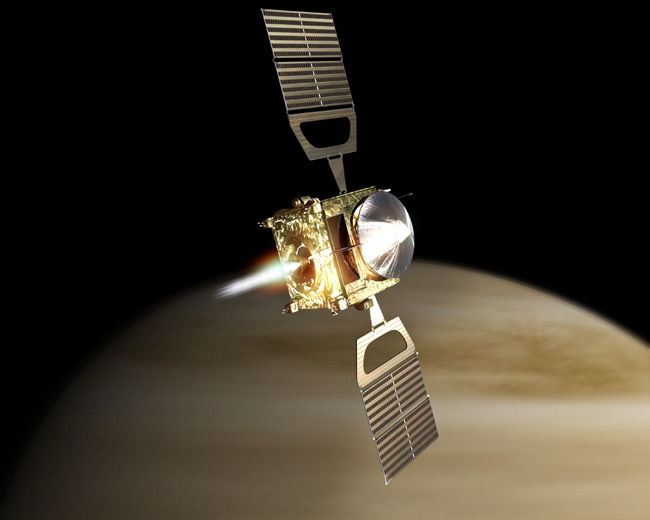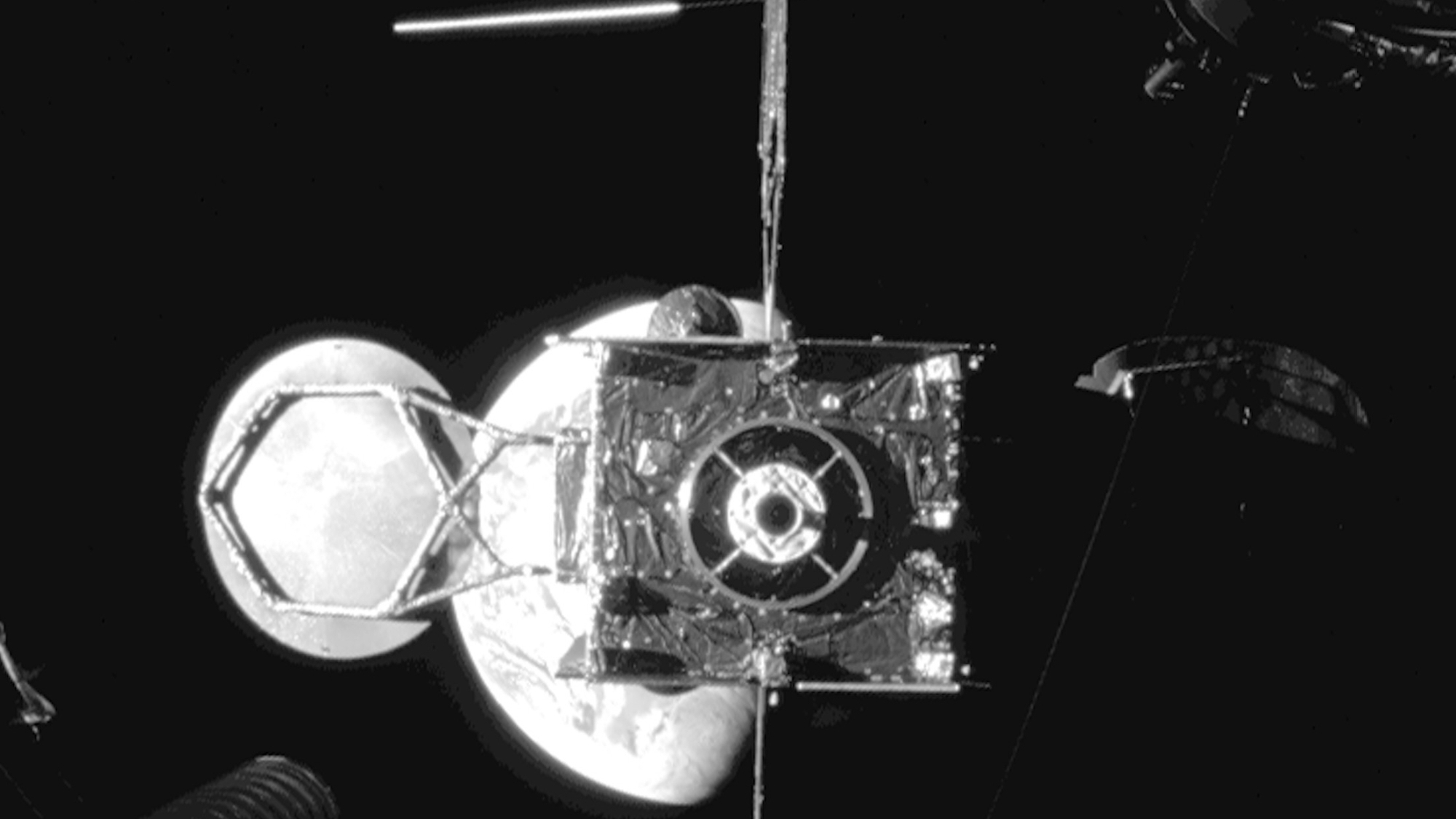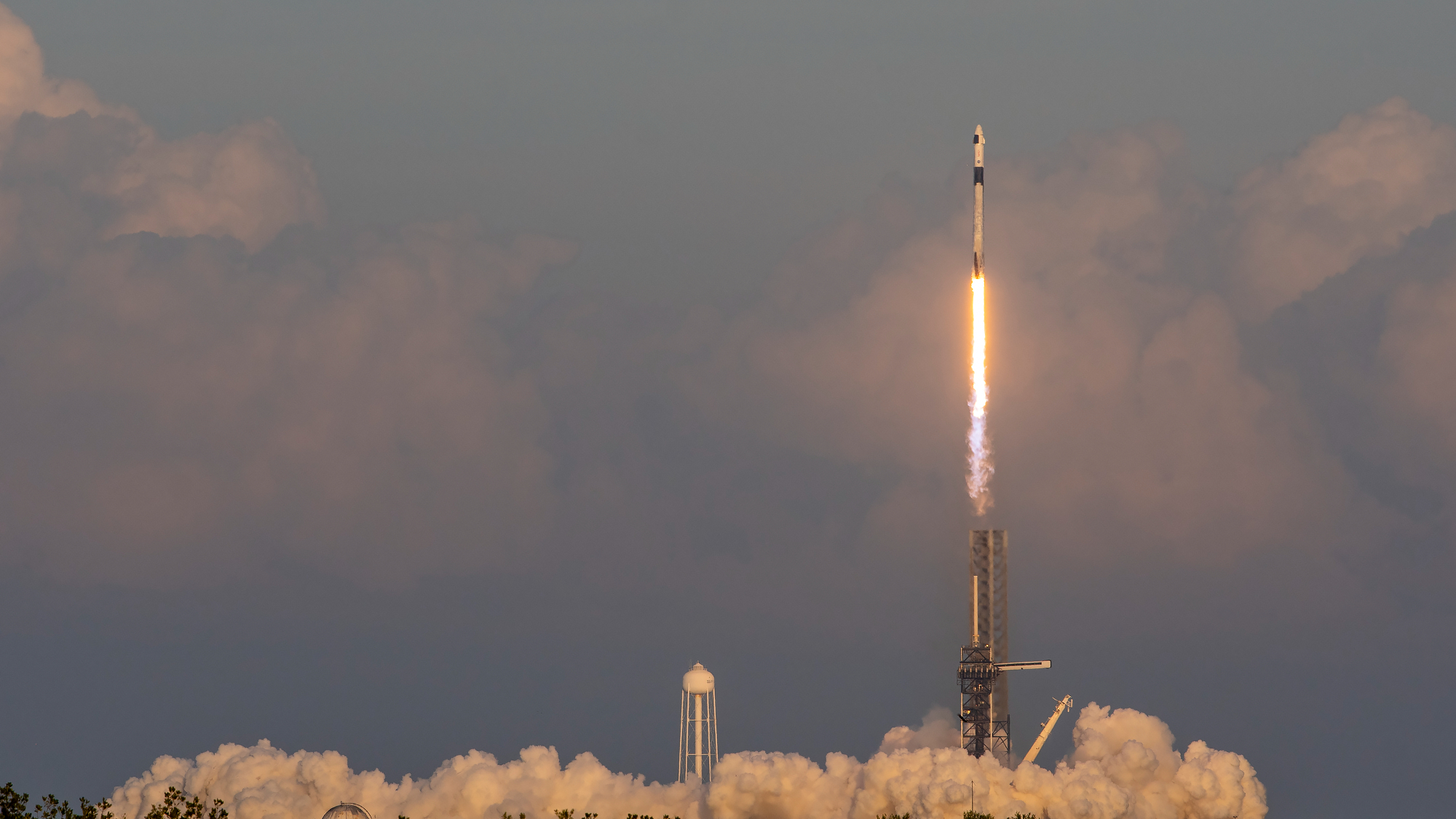Launch Date Slips for Europe's First Venus Probe

Thelaunch of Europe's first Venus probe has been delayed after pad workers foundsigns of contamination atop the spacecraft's Russian-built rocket, the EuropeanSpace Agency (ESA) said Friday.
Originallyset to launch on Oct. 26, the VenusExpress spacecraft will be pushed back "several days" while pad workers removethe probe from its fairing during a series of checks and inspections, ESA officials said ina statement.
Themission has a launch window that extends through November 24, they added.
Builtfor ESA by France's EADS Astrium, Venus Express is set to ride a Soyuz rocketequipped with Fregat upper stage into space in a launch to be staged fromBaikonur Cosmodrome in Kazakhstan. The launch will begin a more than five-monthspaceflight to the second planet in the Solar System.
Insulationreportedly contaminated Venus Express prompting its removal from the fairingand clean-up operations, according to a BBC News report. The contaminationcame either from the spacecraft's protective fairing, which shields it duringlaunch, or the Fregat engine stage designed to propel the probe toward Venus,the report added.
Researchershope Venus Express will shed new light on Venus' constantly cloudy atmosphere,as well as determine whether the planet is currently seismically or volcanicallyactive, ESA officials said. The spacecraft will carry seven primary instrumentsto study the planet.
Thelast spacecraft dedicated to taking a close look at Venus was NASA's Magellan probe, whichmapped the planet for about four years after arriving in orbit in 1990.
Get the Space.com Newsletter
Breaking space news, the latest updates on rocket launches, skywatching events and more!
VenusExpress is the latest swiftly-built spacecraft developed by the ESA to explorean inner solar system planet. Its predecessors - ESA's Rosettaand MarsExpress missions - launched in 2004 and 2003 respectively. The Venus probe tookless than four years to move from the concept stage to the launch pad, making itthe fastest ESA satellite built to date, ESA officials said.
Join our Space Forums to keep talking space on the latest missions, night sky and more! And if you have a news tip, correction or comment, let us know at: community@space.com.

Tariq is the Editor-in-Chief of Space.com and joined the team in 2001, first as an intern and staff writer, and later as an editor. He covers human spaceflight, exploration and space science, as well as skywatching and entertainment. He became Space.com's Managing Editor in 2009 and Editor-in-Chief in 2019. Before joining Space.com, Tariq was a staff reporter for The Los Angeles Times covering education and city beats in La Habra, Fullerton and Huntington Beach. In October 2022, Tariq received the Harry Kolcum Award for excellence in space reporting from the National Space Club Florida Committee. He is also an Eagle Scout (yes, he has the Space Exploration merit badge) and went to Space Camp four times as a kid and a fifth time as an adult. He has journalism degrees from the University of Southern California and New York University. You can find Tariq at Space.com and as the co-host to the This Week In Space podcast with space historian Rod Pyle on the TWiT network. To see his latest project, you can follow Tariq on Twitter @tariqjmalik.









